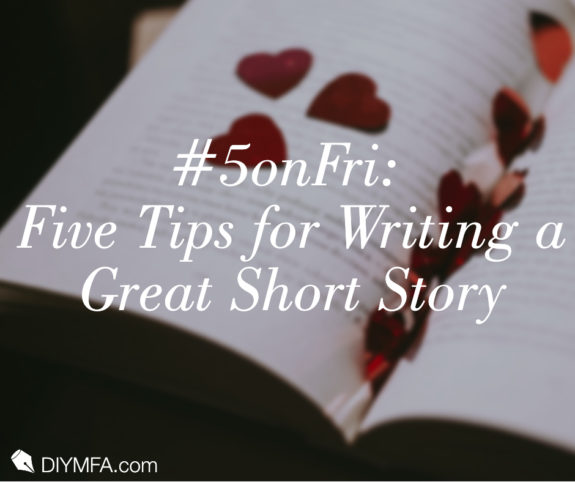Writing a short story always seems so easy until you try to write one. Then, reality sets in. How do you fit in character development? An entire plot? So much to fit and so few words!
Because of these constraints, short stories are a great tool to practice writing. Short stories can teach you to cut out the unnecessary fluff and practice writing a wide variety of stories as they are much faster to finish than novels. You can try various genres, test story ideas, and more.
In this article, we’ll give you five simple tips for writing a great short story. Take out your pen or your laptop, and get your creative juices flowing!
1) Just get the first draft out
As writers, our minds are trained to filter out ideas and make edits as we are writing. After we write a sentence, we instantly look for ways to improve it. When writing a short story, this can actually stifle creativity.
Don’t worry too much about plot holes or word counts when writing the first draft. Instead, focus on getting a full story out. If your brain is trying to kill an idea before you write it, just write it out. There’s no harm and could be a seed of something great. The first draft is not the final draft and there will be plenty of room to iron out the details and mistakes before any living soul needs to see your story. For more details on editing a short story, this guide is pretty good.
This process often results in a stronger story, more creative ideas, and a faster process for writing a short story. If you need more story ideas, there’s this great list of short story ideas that you can use.
2) Don’t lose yourself in the details
In a short story, every word counts. You don’t have the freedom that writing a novel provides to expand for pages at a time. You’ll have to focus on what the reader absolutely must know about and trim away all the excess content.
In your first draft, feel free to include as much as you want. Then give it a second read, asking yourself: Does this sentence add anything to the story? Does it provide the necessary information? Can I make this scene simpler or shorter?
Try and focus on the details that matter, and let go of the rest. It’s hard cutting away parts that you love, but sometimes this is just what your story needs to go from good to great!
When it comes to short stories, remember the saying: Good things, when short, are twice as good.
3) Make the dialogue believable
If your short story has dialogue, the quality of the dialogue can make or break the story. If it seems fake or over-the-top, it simply won’t work to keep the story flowing naturally. Try and get into your character’s minds and hearts, and write with their own voice. A naive 14-year-old student and a weathered veteran won’t think, talk, or even gesture the same way.
Creating believable dialogue is an intrinsic part of making the audience relate to your characters and your plot. This is particularly difficult in short stories because writers intuitively try to include only the dialogue that moves the plot forward, making the conversations sound unnatural. Try and read the dialogue out loud after you’ve written your story’s conversations. If it doesn’t feel natural, try to play around with the words until you find the right mix. If you don’t know somebody in the right age range to use as a reference point, try looking at the dialogue in YouTube videos or movies. Compare that to your own dialogue to see how on-point you are.
To practice dialogue-writing, I often write fanfiction to practice using different characters, styles, and emotions within the dialogue. It becomes very easy to tell when you don’t write dialogue properly within fanfiction because when reading out loud, you’ll notice that the dialogue feels “out of character”. I’ll often go to Commaful’s fanfiction page, choose a fandom, and start practicing. The Star Wars section is one of my favorites for this exercise because if you can write dialogue for aliens, then you can probably write dialogue for anybody.
4) Show, don’t tell!
I know, I know, you’ve probably been given this advice throughout your life, but it actually applies even more for short stories. If something happens in your story, don’t just tell the reader about it, but rather reveal it to them through the plot. One way to visualize the difference is to imagine your story as a movie. Imagine if the most critical points of the movie were narrated rather than shown. This makes your audience engage and connect with the characters instead of simply reading about a situation.
Showing rather than telling helps readers build a closer relationship with the characters and helps draw readers in. It’s critical to draw readers in and help them relate to characters quickly in a short story because readers won’t feel the twists and turns of the story without being emotionally invested and you have limited words to get them invested. Plus, if you merely tell them about an essential part of the story, you are missing out on the opportunity to create drama and suspense!
5) Jump right into the action
In a short story, there is no time for long introductions or world-building. Instead of character introductions or explanations of the rules of the universe, great short stories often weave worldbuilding into the plot.
You meet the protagonist and the antagonist through the adventure. If the world has dragons, introduce the dragon when the dragon actually appears in the story. If the world uses magic, introduce that when the character uses magic.
This helps give the story the fast-paced feeling a short story needs and helps you meet any word count limits you may have.
What are you waiting for? Get writing your short story!
These are five basic tips that you can apply to your short story writing immediately. Short stories have become increasingly popular over the years with the decrease of attention spans and the dominance of social media. Many short story apps have sprung up and short stories are now even shared on Instagram. There has never been a better time to get into short story writing. Not only are they incredibly fun to write, but they also can be incredibly useful for growing your audience.

Anna Thu Nguyenova is a writer, entrepreneur, actress, and founder of Saigon Comic Con.







